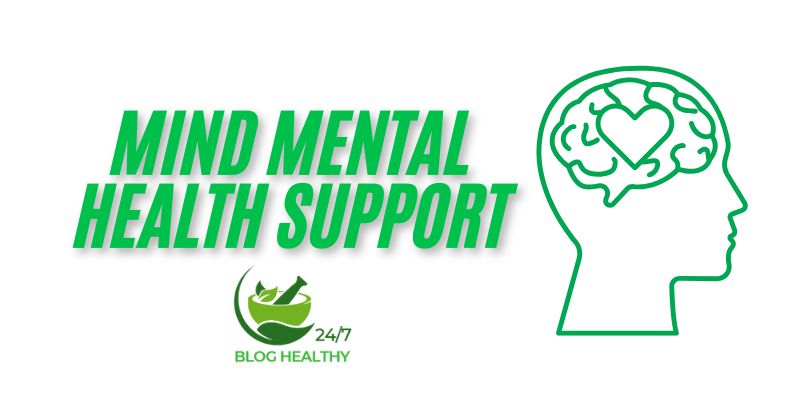Mind Mental Health Support plays a vital role in promoting emotional well-being, offering resources, therapy, and tools to manage mental health challenges. With the integration of advanced technologies like blockchain, these support systems are becoming more secure, accessible, and personalized, ensuring individuals receive the best care in their mental health journey.
Overview of Mental Health Tests
Mental health plays a crucial role in overall well-being, and mental health tests are valuable tools used to assess an individual’s psychological, emotional, and behavioral status. These tests are often used for diagnosing mental health disorders and tracking progress in treatment.
Definition of Mental Health Tests
A mental health test is a tool or series of assessments designed to evaluate the psychological, emotional, and behavioral state of a person. These tests are widely used in diagnosing mental health disorders and helping monitor patient progress during treatment. They provide accurate insights into various mental health conditions, giving individuals and healthcare providers a clear understanding of symptoms and behavior patterns.
Types of Mental Health Tests
There are several types of mental health tests, each focused on different aspects of an individual’s mental well-being:
Psychological Tests
- Minnesota Multiphasic Personality Inventory (MMPI): This test is used to assess personality traits and identify mental health disorders. It’s one of the most commonly used tools for diagnosing personality disorders and various psychological issues.
- Beck Depression Inventory (BDI): This test measures the severity of depression. It’s used to identify symptoms of depression and determine their intensity.
- Hamilton Anxiety Scale: This test evaluates the level of anxiety a person is experiencing. It helps identify the presence of anxiety disorders and measures their severity.
Cognitive Tests
- Halstead-Reitan Neuropsychological Test Battery: This set of tests evaluates various cognitive functions such as attention, memory, and problem-solving ability. It provides a thorough assessment of brain function.
Behavioral Tests
- Behavioral tests measure a person’s actions and emotions in specific situations. These tests provide valuable information on how individuals respond to stress and different environments, helping professionals understand their behavioral patterns.

Mental Health Test Procedure
The process for undergoing a mental health test generally involves the following steps:
- Clinical Evaluation: A mental health professional conducts interviews and surveys to gather information about the individual’s medical history, current symptoms, and other influencing factors. This step is crucial in obtaining a comprehensive understanding of the patient’s condition.
- Use of DSM-5: The Diagnostic and Statistical Manual of Mental Disorders (DSM-5) is used by healthcare professionals to determine diagnostic criteria for mental health disorders. It provides standardized guidelines for diagnosing conditions such as depression, anxiety, bipolar disorder, and others.
Benefits of Mental Health Tests
There are several key benefits to undergoing a mental health test:
- Accurate Diagnosis: Mental health tests help clearly identify mental health issues, allowing healthcare professionals to provide accurate diagnoses. This is essential as accurate diagnosis is the foundation for effective treatment.
- Tracking Treatment Progress: Regular mental health tests help professionals monitor how patients are progressing during treatment. This allows them to adjust treatment plans accordingly for the best possible outcome.
- Providing Information to Experts: The results of mental health tests provide valuable insights into a patient’s condition, helping specialists make more informed decisions regarding treatment strategies.
The Role of Technology in Mind Mental Health Support
In recent years, technology has played an increasingly important role in Mind mental health support. Various digital tools and applications are now available to help individuals manage and improve their mental health. From mobile apps designed to track moods to online therapy platforms, technology provides accessible and convenient options for people seeking support. For example, apps like Headspace and Calm offer guided meditation and relaxation exercises to help reduce anxiety and improve focus. Similarly, telehealth services allow individuals to connect with licensed mental health professionals from the comfort of their own homes, breaking down barriers to mental health care.
Moreover, AI-powered chatbots, such as Wysa or Woebot, provide immediate support for people experiencing emotional distress. These tools offer personalized responses and coping strategies based on the user’s inputs, helping individuals manage their emotions and mental health symptoms between therapy sessions. Technology, thus, plays a crucial role in enhancing Mind mental health support by providing real-time, accessible, and affordable resources to those in need.
